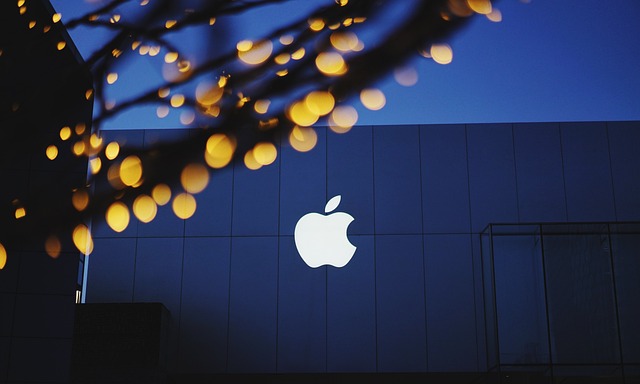Introduction
Apple Inc. is not just a technology company; it's a global phenomenon. Behind its iconic products and loyal customer base lies a meticulously crafted marketing strategy that has reshaped industries and set benchmarks for excellence. In this article, we will delve into the enigmatic world of Apple's marketing strategy, analyzing its tactics and uncovering the types of marketing strategies that have propelled the company to its current status as a tech giant.
Apple's Unique Marketing Strategy Tactics
Apple's marketing strategy is renowned for its distinctive approach and unwavering commitment to certain key tactics:
Product Innovation: At the core of Apple's strategy is relentless innovation. By continually developing groundbreaking products like the iPhone, iPad, and Mac, they create a sense of anticipation and excitement among consumers.
Simplicity in Design: Apple products are renowned for their sleek and minimalist design. This simplicity extends to its marketing materials, with clean visuals and concise messaging that resonate with consumers.
Emotional Appeal: Apple doesn't just sell products; it sells experiences. Their marketing campaigns focus on evoking emotions and connecting with customers on a personal level. Think of the "Shot on iPhone" campaign, which celebrates user-generated content.
Ecosystem Integration: Apple excels at creating a seamless ecosystem. Their devices, software, and services work together seamlessly, making it convenient for users to stay within the Apple ecosystem.
Also Read
· Email Marketing and Email Marketing Tools
· Unlocking Earnings and Opportunities: Email Marketing Jobs on Heuristic Heights
Premium Pricing: Apple positions itself as a premium brand, and its pricing reflects that. They justify this premium with the perceived value and quality of their products.
Retail Stores: Apple's retail stores serve as more than just sales outlets; they are experiential hubs. Customers can explore products, attend workshops, and get personalized assistance.
Brand Loyalty: Apple has one of the most loyal customer bases in the world. Their marketing focuses on reinforcing this loyalty through superior customer service and brand identity.
Types of Marketing Strategies Employed by Apple
Apple's marketing strategy encompasses a range of different approaches tailored to achieve specific objectives:
Product Development Strategy: At the heart of Apple's success is its product development strategy. By consistently launching groundbreaking products, they create a sense of anticipation and excitement that fuels demand.
Brand Loyalty Strategy: Apple prioritizes brand loyalty through its exceptional customer service and consistent branding. Users often become advocates, leading to word-of-mouth marketing and strong customer retention.
Emotional Marketing Strategy: Apple's marketing often focuses on emotional appeal. Their commercials and campaigns aim to connect with consumers on a personal level, making them feel a part of the Apple community.
Ecosystem Strategy: Apple's ecosystem strategy involves creating products, services, and software that work seamlessly together. This not only enhances the user experience but also fosters customer lock-in.
Retail Strategy: Apple's retail stores are a significant component of their strategy. They serve as experiential showrooms where customers can interact with products and receive personalized assistance.
Premium Pricing Strategy: Apple's premium pricing strategy positions its products as high-end luxury items. This strategy helps maintain brand prestige and profitability.
Innovation Strategy: Apple's relentless focus on innovation ensures that their products are always at the cutting edge of technology, keeping competitors at bay.
Apple Marketing Strategy in Action
Apple's marketing strategy is best understood through some of its iconic campaigns and initiatives:
"Get a Mac" Campaign: This series of ads personified Mac computers as cool and friendly, contrasting them with the perceived shortcomings of PCs. It reinforced Apple's brand identity as innovative and user-friendly.
Product Launch Events: Apple's product launch events are highly anticipated and receive extensive media coverage. These events create a sense of excitement and showcase the company's commitment to innovation.
Siri: Siri, Apple's voice-activated personal assistant, was marketed as a breakthrough feature, highlighting the company's focus on cutting-edge technology.
App Store: The App Store's marketing emphasizes the abundance and quality of apps available for Apple devices, enhancing the overall user experience.
Apple Music: Apple's music streaming service competes with industry giants like Spotify. Their marketing focuses on curated playlists, exclusive content, and user experience to attract subscribers.
Conclusion
Apple's marketing strategy is a testament to the power of innovative thinking, brand loyalty, and emotional connection. By consistently delivering products that capture the imagination, the company has cultivated a loyal customer base willing to pay a premium for the Apple experience. Their focus on simplicity, ecosystem integration, and retail presence further solidify their position as a tech giant. As Apple continues to evolve and introduce new products, their marketing strategy remains a benchmark for companies aspiring to make a profound impact on the world. Apple's marketing strategy isn't just about selling products; it's about creating a legacy.

